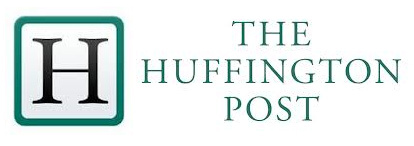When you feel down, turning to self-help books might seem like a good solution. But new research suggests it probably won’t leave you feeling a whole lot better.  Consumers of self-help books are more sensitive to stress and show more depressive symptoms than those who don’t read such literature, University of Montreal psychologists found.
Consumers of self-help books are more sensitive to stress and show more depressive symptoms than those who don’t read such literature, University of Montreal psychologists found.
For the small pilot study, the researchers tested 30 people for personality and mental health traits such as stress reactivity (the tendency to respond to a stressor, measured by stress hormone levels present in saliva), openness, self-discipline, extraversion, compassion, emotional stability, self-esteem, and depressive symptoms.
Half of the participants said that they read self-help books and half did not. The self-help consumers were divided into two categories based on which of two broad classes of such books they read: problem-oriented books that discuss the nature of personal challenges, such as divorce, as well as means of addressing these challenges, and growth-oriented books that promote “inspirational messages about life and happiness.”
The results, which appear in the journal Neural Plasticity, show that readers of problem-focused self-help books had the greatest depressive symptoms, while those who read growth-oriented material had greater stress reactivity than non-readers.
There’s a “chicken or egg” problem here. Does high stress reactivity and a tendency towards depression lead people to read self-help books, or does reading self-help books make people more stressed out and depressed? Catherine Raymond, a PhD student at the University of Montreal and the study’s lead author, said both are possible.
“We cannot answer this question yet,” she told The Huffington Post. “We would need to perform an experimental study to confirm the direction of the association.”
Still, the results showed that reading self-help books did not correlate with qualities like self-discipline, emotional stability and self-esteem.
So even if reading those kinds of books isn’t making things worse, it certainly doesn’t seem to make things better. “None of the variables were shown to be more beneficial in self-help books consumers,” Raymond said.
Part of the problem, most likely, is the fact that much self-help advice is not grounded in actual psychological research or clinical guidelines, according to Steve Salerno, author of Sham: How the Self-Help Movement Made America Helpless.
“Though modern self-help had its origins in works by classically trained psychiatrists… today’s leading exponents have as much business trading in mental health as they do performing neurosurgery,” he wrote in The Wall Street Journal. “They’re snake-oil salesmen, pitching regimens that have never been validated.”
That’s not to say that there isn’t some great reading out there that can aid in personal transformation — but you’ll probably find it in the psychology section instead. And of course, if you have a problem that persists or interferes with your everyday life, seeking professional help is probably a better option.
“Readers should take time to inform themselves about the authors of the self-help books that they wish to read,” Raymond said. “For instance, some self-help books that we call ‘bibliotherapy’ are written by health professionals, clinicians and scientific researchers and contain scientifically proven informations about many subjects. We would suggest readers to go for these books instead.”






























